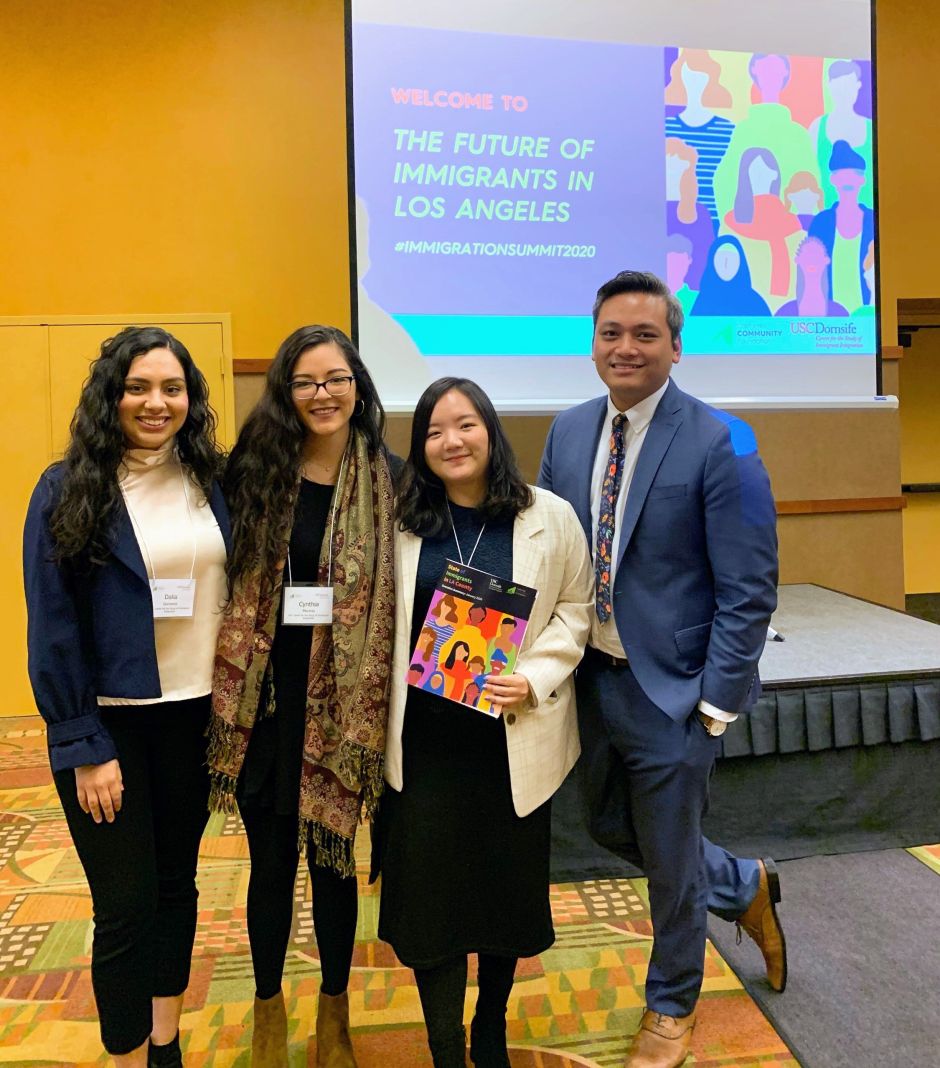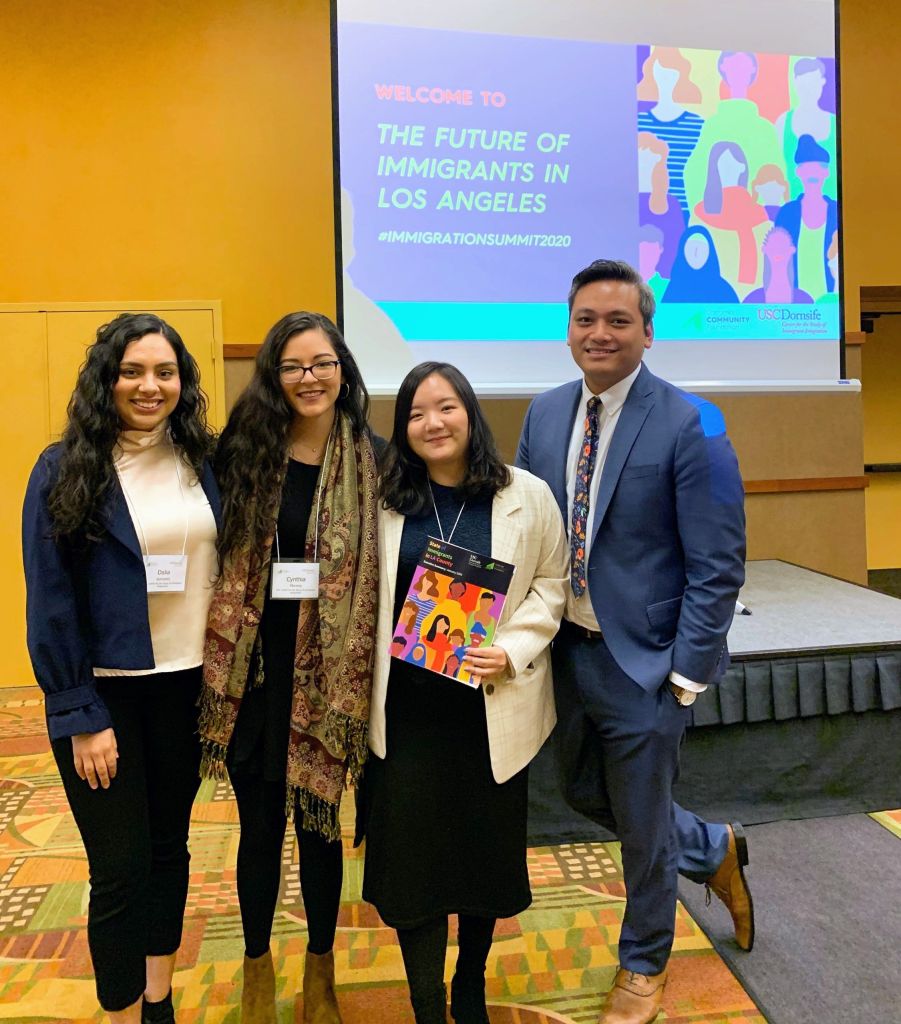While at the national level the administration of Donald Trump is largely dedicated to criminalizing and rejecting immigrants; in Los Angeles pro-immigrant leaders – representatives of the public sector, academia and philanthropy – seek options for this community to move forward and be successful.
This Thursday, dozens of these representatives met at the “The Future of Immigrants in Los Angeles Summit” summit to share strategies and solutions.
The summit also presented the first new annual report, the "State of Immigrants in Los Angeles County", made by the USC Center for the Study of Immigrant Integration (CSII) and the Council for Integration of the Immigrants.
The study highlights the importance of immigrant communities for the future of the city and documents how they are economically, if they are connected to certain services and information and if they participate in civic life.
Edward Muña, senior analyst at CSII, said that for him the most impressive thing about working on the report was finding how deep the immigration issue is in Los Angeles County.
"For example, we discovered that 20% of residents are either undocumented or live with an undocumented family member and that 60% of children 18 years of age or younger have at least one undocumented father," said the analyst, who was part of a Group of five to prepare the report.

Muña added that, perhaps without knowing it, immigrants have great power in the country.
In Los Angeles County, it is estimated that about 70,000 people who will be of legal age and will be eligible to vote in 2020 are children of immigrants.
“That is something impressive,” said Muña. "And if we count the 800,000 legal permanent residents who are eligible to naturalize … If they do, they can also vote for the 2020 election."
The study also revealed that immigrants represent 44% of all workers in Los Angeles County.
However, one in five foreign-born workers (20%) and more than one in three (33.3%) undocumented workers experience working poverty.
Antonia Hernández, president and CEO of the California Community Foundation, said that all this information is vital because for the first time you can present a larger image of the immigrant community and have a baseline.
"So every year we have an annual report we can see the progress and have defined objectives to see what we want to achieve to improve the lives of immigrants in Los Angeles County," he said.
Hernandez added that he is not impressed by the data as much as seeing a more holistic picture of the subject as presented on Thursday.
“Los Angeles is where the world meets. We have immigrants everywhere and although immigration in the media is seen as a Latino issue, it is a worldwide problem, ”he said. "That is why we must be more inclusive, more proactive and have defined objectives to work together and that will give us more success."
Information Sessions
Information sessions and panels discussed how immigrants currently live in Los Angeles County and what should be done to promote inclusion, rights and
opportunities
Fortunately, there have been very positive changes that have benefited the immigrant community in the Golden State, speakers said.
“California has done an impressive job for immigrants. For the past 15 years we have created more than 75 pro-immigrant policies, ”said Cynthia Buiza, executive director of the California Immigrant Policy Center.

She gave as examples the Sanctuary cities, the driver's licenses for undocumented immigrants and the Medi-Cal service for low-income undocumented immigrants from 19 to 26 years old.
However, he said that the work does not end there and that there are still immigrants who worry about situations such as the “public charge” initiative that Trump announced last year and the criminalization for not having documents in the country.
However, Manuel Pastor, director of CSII and professor at the USC, said that the way immigrants live can determine the future of Los Angeles.
"While Washington is hampered by political paralysis, Los Angeles has the opportunity to make measurable progress in developing its own welcoming approach and boldly promoting the integration and participation of immigrants in economic and civic life," Pastor said. .
Unfortunately, California is currently in number four place to be an "unequal state" after states like Alabama and Mississippi.
"We need to have a different model of the economy," Pastor added.
In order to achieve success and excel activists said undocumented and legal immigrant communities must have active participation in their neighborhoods.
“We must go out there and challenge our families and we must create more leaders like ourselves,” said Angelica Salas, director of CHIRLA. "We ourselves have influenced many policies through our conversations."
To read more about the report visit: https://dornsife.usc.edu/csii/state-of-immigrants-LA







